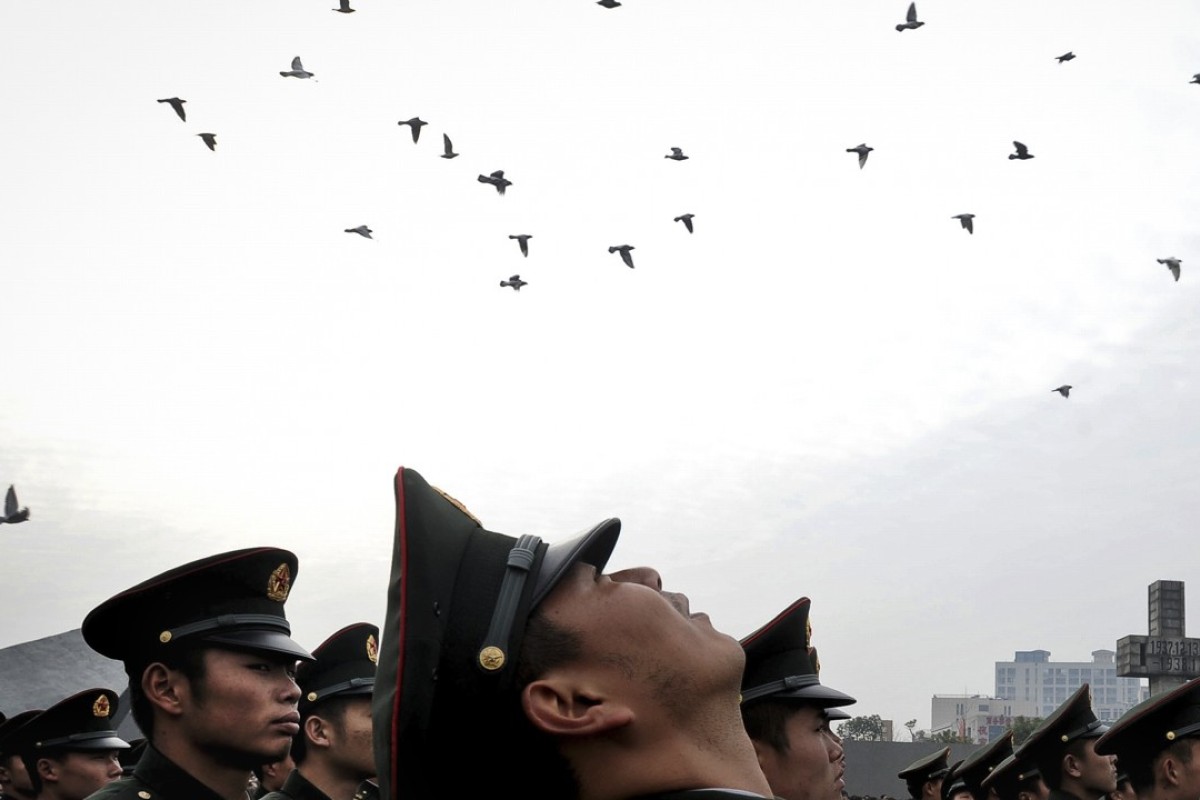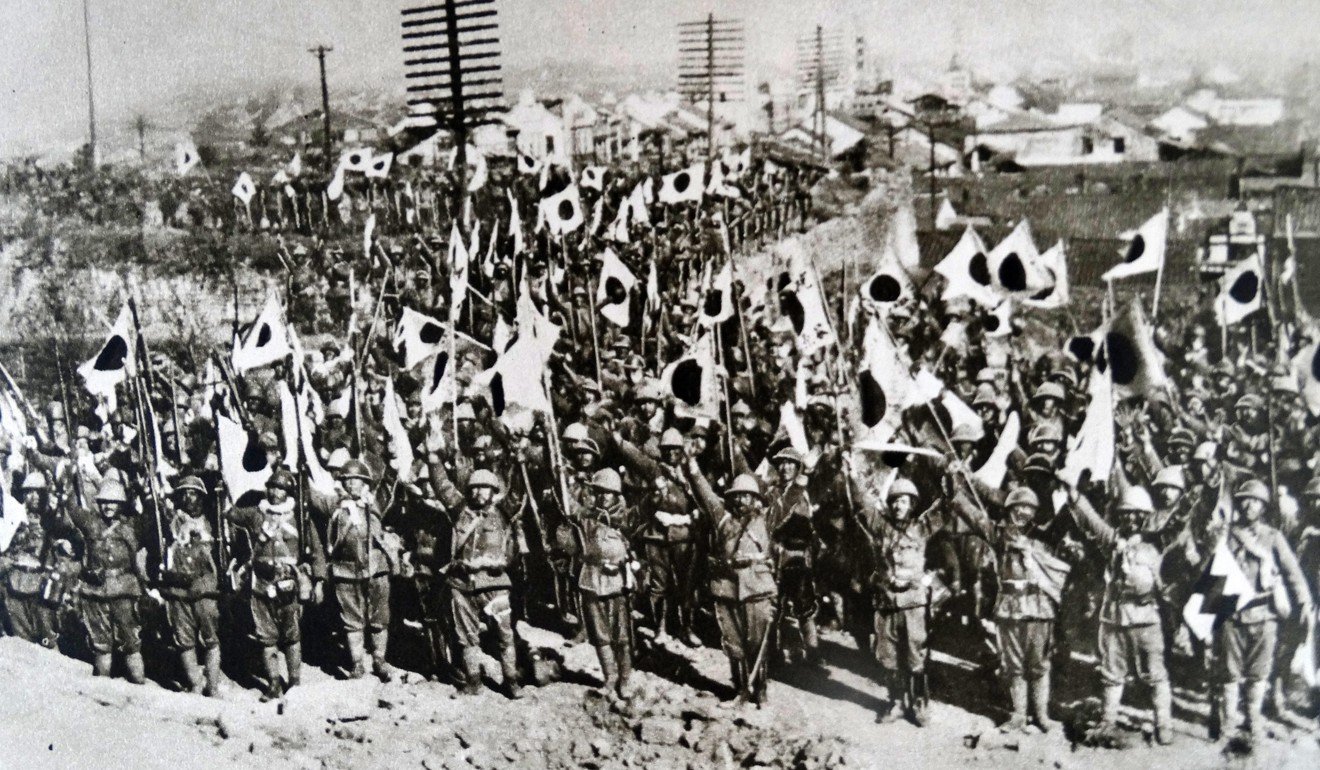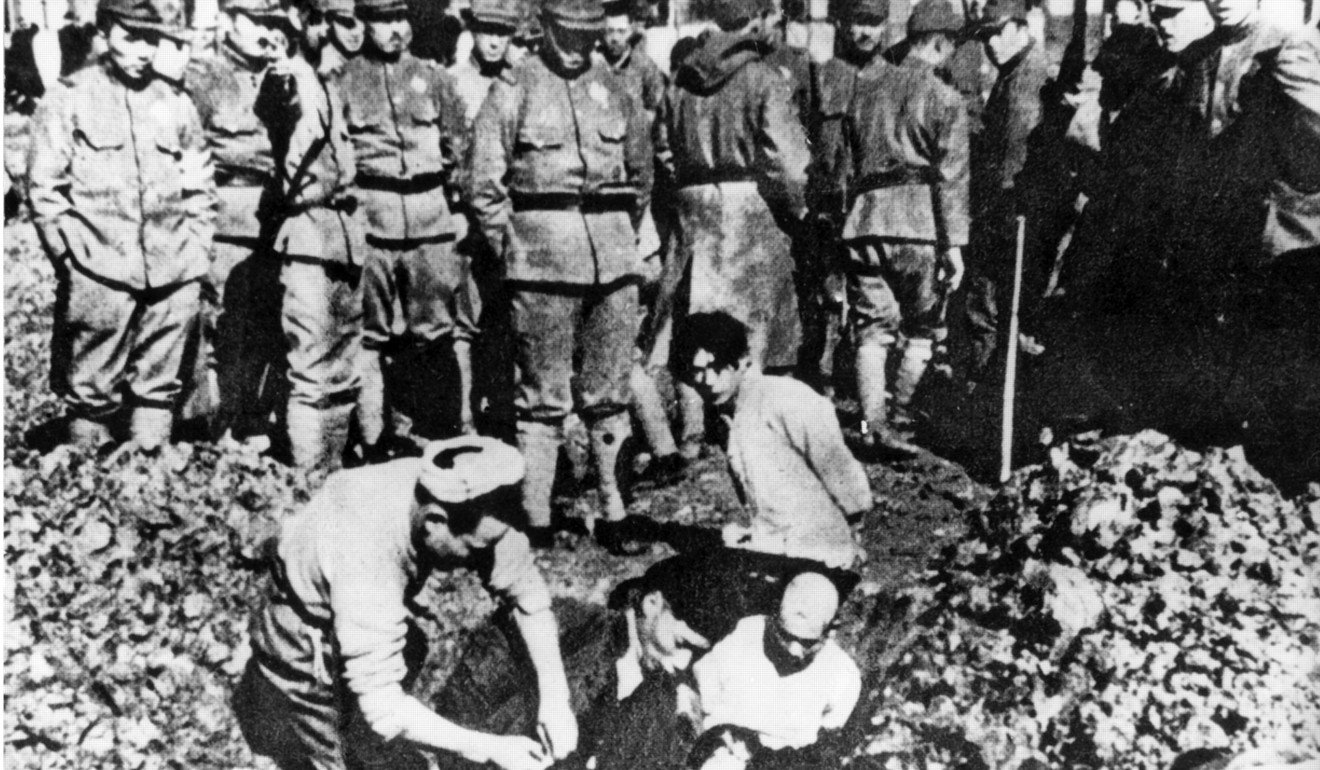Opinion
On Reflection by Rana Mitter
80 years later: can China, Japan overcome Nanking Massacre’s legacy?
Memory of the mass killings in 1937 sits at the heart of disputes between Beijing and Tokyo today, but the issue goes beyond Chinese anger versus Japanese silence

Rana Mitter
Published: 1:00pm, 10 Dec, 2017


Pigeons are released to symbolise the victims of the 1937 Nanking massacre. Photo: AP
RECENTLY I was in Nanjing. I had hoped to visit the massive memorial that commemorates the terrible events of December 1937, when Japanese troops entered the city, what was then the capital of China under the Nationalist government of Chiang Kai-shek. I discovered that the building was closed in preparation for a major visit and speech by Chinese President
Xi Jinping next week, marking the 80th anniversary of the atrocity. However, I didn’t need to revisit the memorial to remember the details of what had happened all those decades ago during the early months of the Sino-Japanese War (1937-45). The massacre has too often been the subject of variable or partial memories in the region, and it is worth revisiting the facts.

Armed police take part in a ceremony at the state memorial to the Nanking massacre in Jiangsu province, China. Photo: ChinaFotoPress
Share:
The city had been abandoned by Tang Shengzhi, the general charged with defending it to the death, the night before. On December 12, Tang himself had slipped away in a small boat while the city’s civilian population waited for the conquerors to enter. Few expected the Japanese to be gentle occupiers. But the scale of the savagery that the city saw was beyond imagination. The killing and sexual assault of thousands upon thousands of civilians would be remembered, using the city’s older English name, as “The Rape of Nanking”. Nowadays it is more frequently called the Nanking massacre.
Opinion: Can Asia handle parallel rise of strongmen in Japan and China?
Historians from China, Japan and the Western world have no doubts about the reality of the horror unleashed on the city. More difficult has been answering the question of why it happened. Reasons specific to the invasion itself played some role. The troops sent to the city as part of the Japanese Imperial Army were not the best troops that Tokyo had to offer. They had been told that the Chinese armies would crumble before them, but instead found themselves fighting lengthy, savage battles in places like Shanghai.

Japanese troops in Nanking after the city's conquest in 1937. File photo
Share:
The cold war also prevented discussion of the killings, as Mao Zedong’s China did not emphasise the massacre as a major issue in its relations with Japan. At that time, it seemed more important to detach Japan from the embrace of the United States, a task achieved in 1972 when premier Tanaka Kakuei visited Mao in Beijing. During much of the 1970s and 1980s, there was significant Japanese overseas development assistance to China, which was – without ever being explicitly stated as such – a kind of compensation for the many war crimes committed by the Imperial Army in the 1930s and 1940s. Things changed in the 1980s. This was when China decided it was time to emphasise the Japanese war record in China. The
Cultural Revolution was over, and with it, any enthusiasm for the radical class struggle associated with Chairman Mao. There were hopes of reunification with Taiwan, and emphasising what the communists and nationalists (Kuomintang) had in common, a shared resistance to the Japanese during the war, made more sense that stressing the civil war that had divided them. As a result, a new interpretation of the second world war appeared in China. One of the most important parts of that new remembrance of the war centred on the Nanking massacre. In 1985, the memorial to the massacre opened on the site of one of the mass killings. Ever since then, public memory of the killings has become an evermore prominent part of the commemoration of the war in China, as well as its political interpretation.
SUBSCRIBE TO THIS WEEK IN ASIA
Get updates direct to your inbox
SUBMIT
By registering, you agree to our T&C and Privacy Policy

Chinese civilians are buried alive by Japanese soldiers during the Nanking massacre in 1937. Photo: Xinhua
Share:
‘Pollution by tourism’: How Japan fell out of love with visitors from China and beyond
Memory of the massacre sits at the heart of disputes between China and Japan today. However, it is too simplistic to see the issue as purely one of Chinese anger versus Japanese silence. For a start, the Japanese role in exposing the massacre to the wider world was important. The Japanese journalist Honda Katsuichi was instrumental in publishing accounts of the massacre in the Japanese press in the early 1970s. There are still too many voices on Japan’s right who play down or even deny the events of December 1937. Yet the contributions of Japan’s progressive forces – historians, journalists, politicians – in acknowledging the shame of the Imperial Army’s actions have been an important part of moving towards reconciliation. Yet Japan’s public sphere has to make even greater efforts to look at the history of the massacre straight on. Even now, its aspirations for leadership in Asia depend in part on its ability to acknowledge the brutality of Japan’s pre-war past.

Japanese soldiers use Chinese prisoners for target practice during a bayonet drill following the Nanking massacre. Photo: Reuters
Share:
However, there is also a challenge for China. It is necessary, and right, to acknowledge the horrors committed against innocent Chinese during the killings of 1937-1938. It is also appropriate to commemorate the victims, as the memorial in Nanjing does in a sequence of wrenching statues placed on the approach to the building.
However, there must be no attempt to use the horrors of history to make simplistic claims about Japan today. Japan is a very different society from the one that gave rise to the atrocity: democratic, peaceful and seeking to strengthen multilateral ties in Asia.
What Shinzo Abe’s election win will mean for China-Japan relations
Both
Xi Jinping and
Shinzo Abe have been emboldened by their re-selection as leaders in their own countries, and their cold relationship is warmer, if not yet enthusiastic. Now there must be a new willingness to create tightly bound, ordered structures in the region that would prevent any power becoming dominant in future. Sincere gestures by China to bring Japan into the
Belt and Road Initiative, and genuine proposals by Japan for China to join the new
Trans-Pacific Partnership, in the absence of the US, could bring more mutual trust between the two countries.
Eighty years on, the two major powers of East Asia should remember and mourn the Nanking massacre together, rather than remain divided over this most horrific of war crimes. ■
Rana Mitter is director of the University China Centre at the University of Oxford and author of ‘A Bitter Revolution: China’s Struggle with the Modern World’ and ‘China’s War with Japan, 1937-45: The Struggle for Survival’
China-Japan relations
Japan
COMMENTS
No comments:
Post a Comment